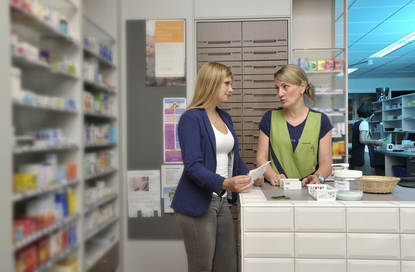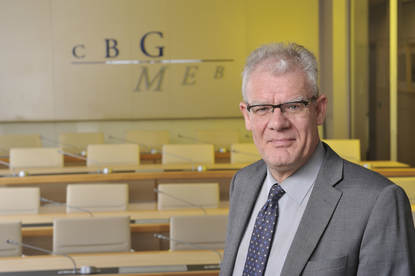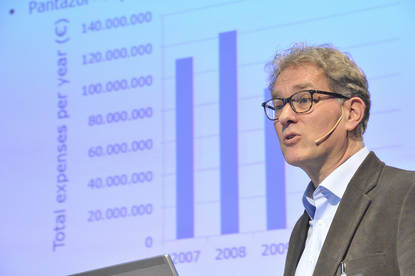Public interaction
Medicines were in the limelight again in 2017. A much discussed topic was the availability of medicines in the Netherlands. The Medicine Shortages and Defects Notification Centre was launched in January 2017 to obtain a better and timely insight into possible shortages. The MEB and the Healthcare and Youth Care Inspectorate (IGJ, previously IGZ) coordinate the notification centre. Now that there is one central notification point, it is easier for medicine manufacturers to report possible shortages of medicines. The MEB and the IGJ can thus already start looking for solutions in an early stage to limit the consequences for patients as much as possible.
The MEB wishes to stimulate the proper use of medicines. To this end, the MEB regularly consults with doctors and pharmacists also when taking decisions. Are these decisions in line with the actual practice? The MEB also involves patient organisations where possible, for example, when preparing information material on generic medicines. The MEB provides the latest information on medicines in the Netherlands and Europe via the MEB website and the Medicines Information Bank.
The MEB expressed its concerns in 2017 about the increasing off-label use of methyfenidate by adults and the risk of serious side-effects. The MEB also held various consultations with general practitioners, psychiatrists and the patient association. By authorising the medicine and concluding agreements on a European level about use and the monitoring of patients, the MEB can get a better grip on the use of this medicine in practice. The MEB is also working on obtaining more insight into the risks when this medicine is used for a longer period of time.
MEB Day 2017 about dilemmas
The theme of the annual MEB Day in 2017 was dilemmas. The day focused on scientific and pharmaceutical developments and which dilemmas these can cause in society. With each decision, the MEB must focus on the question: will this benefit patients? Over 500 visitors visited the MEB Day.
Various topics were discussed during the MEB Day, ranging from the use of antibiotics in the veterinary sector to the connection between Art and Pills. Psychiatrist Damiaan Denys translated the theme ‘dilemmas’ into ‘trust and confidence in psychiatry’. He explained how deep brain stimulation can help reduce fear and obsessive-compulsive behaviour. As a result, the patients’ self-confidence increases. Yvonne van Rooy, chair of the Dutch Hospital Association, set out the dilemmas that hospitals are currently facing. On the one hand, hospitals are very pleased with the technological developments. On the other hand, they are asking themselves the question: what should we invest in and what should we not invest in? Mirjam Mol, Director of Pivot Park in Oss, gave her own view on the dilemmas for the pharmaceutical industry in the Netherlands.
At the end of the scientific programme, the MEB Day was dedicated to the departure of Bert Leufkens. After ten years of chairing the MEB, he is dedicating himself again to science at Utrecht University. Ton de Boer was appointed as the new chair of MEB as of August 2017.

MEB Consultation with Patient and Consumer Organisations
The MEB Consultation with Patient and Consumer Organisations, in which various patient and consumer organisations are represented, meets several times a year to exchange knowledge and experiences and to learn from one another.
During these meetings in 2017, the following topics were also discussed in addition to the current themes:
- Measuring research results in medicine assessments
- Measuring patient experiences
- Information material on generic medicines
- Information requirements of patients about medicines
- Input of patient organisations for scientific advice
- Adverse events week campaign
- Positioning of the MEB
Medical Practice Committee
The Medical Practice Committee is a focus group for doctors and pharmacists, other professional groups and the MEB that examines practical and policy aspects of medicines.
The topics discussed in 2017 included:
- Quality defects and shortages of medicines
- Clarification of policy about the doses on packaging
- Uniform definitions for the frequency of adverse effects
- Policy and practical application of the naming of generic and reference medicines
- Information about OTC medicines on the website
- Gender and medicines
- Off-label use of medicines
CCR
In the Contact Committee on Authorisation (CCR), a dialogue takes place between the MEB and representatives from the pharmaceutical industry. This mostly concerns current developments and the policy on authorisation procedures.
The following topics were discussed in the CCR in 2017:
- Brexit and the relocation of EMA
- Notification point for medicine shortages and defects
- New marketing authorisation approach
- Patient-focused assessments and the Proper use of medicines
- In-use shelf life of OTC medicines
The public consultations are also discussed in the CCR. In 2017, the policy document Labelling of Pharmaceutical Products was revised, published for public consultation and then approved. As a result of the changes in labelling policy, the policy documents for the Summary of Product Characteristics (SmPC) and the patient information leaflet were also updated.
Young MEB
Young MEB consists of 14 enthusiastic young scientists. They provide solicited and unsolicited advice to the MEB. The members are closely involved in the clinical and scientific practice and have a keen eye for innovative developments. The MEB likes to take the new ideas of Young MEB into account in its assessments and decision-making.
In 2017, the MEB started actively involving the members of Young MEB in giving scientific advice and evaluating educational material. In addition, during the meetings, the following topics were also discussed:
- Availability of clinical studies for research
- Off-label use of medicines and the possible role of the MEB
- Accelerated authorisation and earlier market authorisation of medicines
- Objective and effectiveness of risk-minimisation materials
- The use of Real World Data/registers









